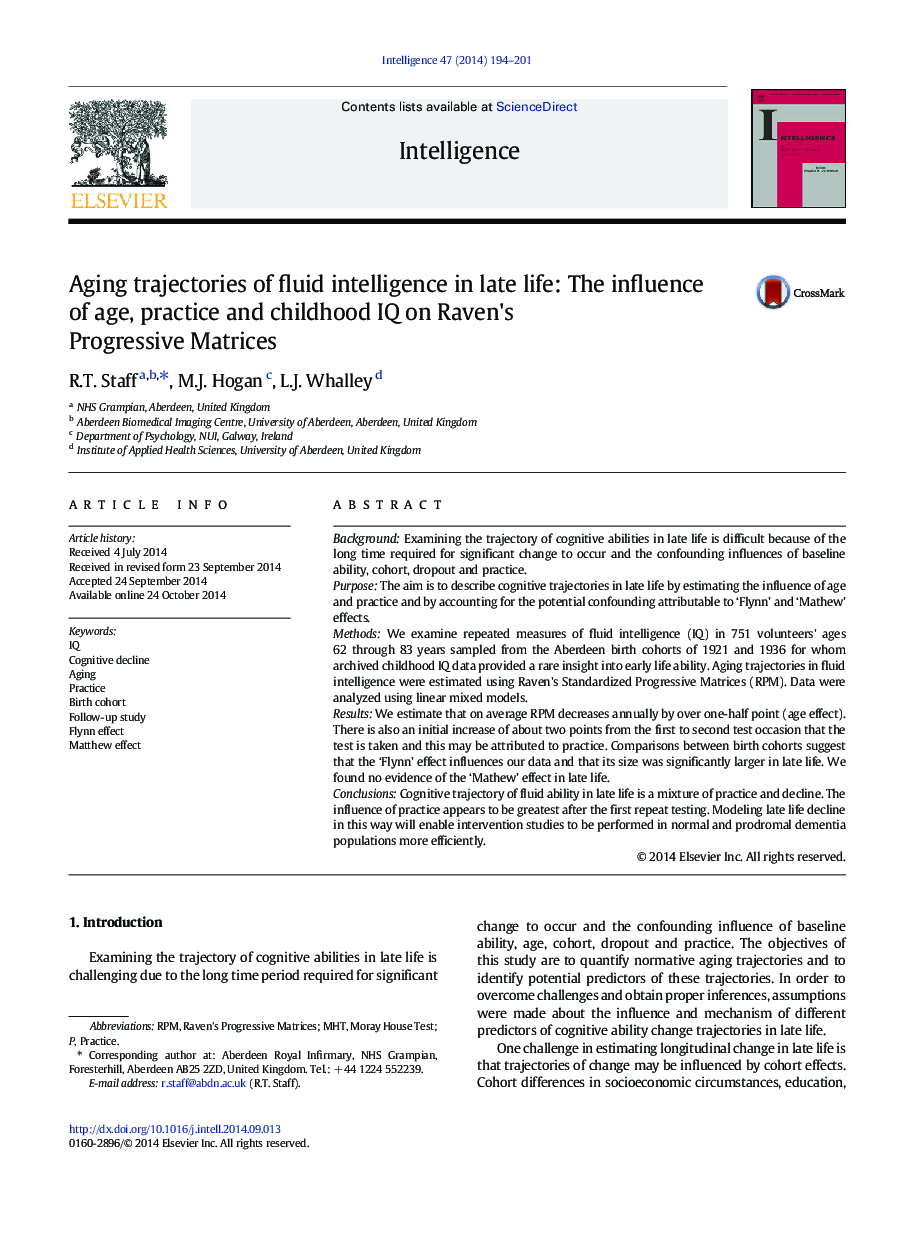| کد مقاله | کد نشریه | سال انتشار | مقاله انگلیسی | نسخه تمام متن |
|---|---|---|---|---|
| 929065 | 1474269 | 2014 | 8 صفحه PDF | دانلود رایگان |

• We examined cognitive decline in two cohorts of healthy elderly people longitudinally born in 1921 and 1936
• We estimate that on average IQ decreases annually by over one half point (age effect)
• Practice accounted for two IQ points on the second test occasion, no effect was observed thereafter
• Comparisons between birth cohorts suggest that the ‘Flynn’ effect influences our data and was significantly larger in late life.
• We found no evidence of the ‘Mathew’ effect in late life
BackgroundExamining the trajectory of cognitive abilities in late life is difficult because of the long time required for significant change to occur and the confounding influences of baseline ability, cohort, dropout and practice.PurposeThe aim is to describe cognitive trajectories in late life by estimating the influence of age and practice and by accounting for the potential confounding attributable to ‘Flynn’ and ‘Mathew’ effects.MethodsWe examine repeated measures of fluid intelligence (IQ) in 751 volunteers' ages 62 through 83 years sampled from the Aberdeen birth cohorts of 1921 and 1936 for whom archived childhood IQ data provided a rare insight into early life ability. Aging trajectories in fluid intelligence were estimated using Raven's Standardized Progressive Matrices (RPM). Data were analyzed using linear mixed models.ResultsWe estimate that on average RPM decreases annually by over one-half point (age effect). There is also an initial increase of about two points from the first to second test occasion that the test is taken and this may be attributed to practice. Comparisons between birth cohorts suggest that the ‘Flynn’ effect influences our data and that its size was significantly larger in late life. We found no evidence of the ‘Mathew’ effect in late life.ConclusionsCognitive trajectory of fluid ability in late life is a mixture of practice and decline. The influence of practice appears to be greatest after the first repeat testing. Modeling late life decline in this way will enable intervention studies to be performed in normal and prodromal dementia populations more efficiently.
Journal: Intelligence - Volume 47, November–December 2014, Pages 194–201